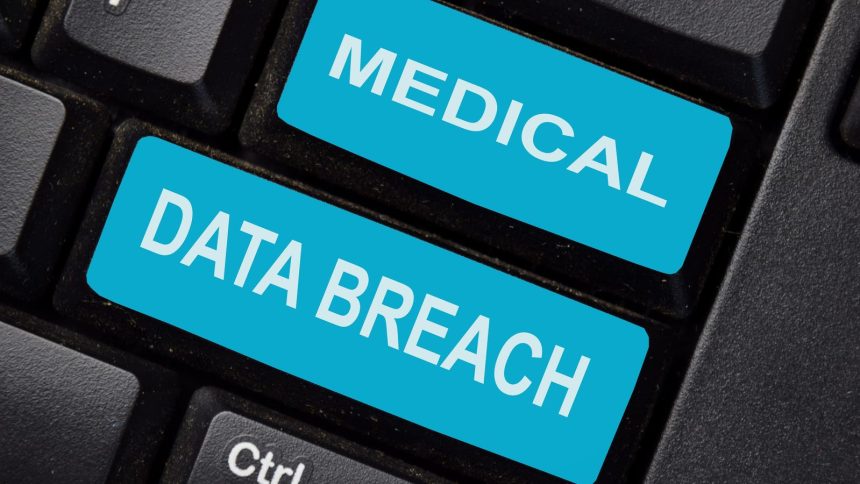The Community Health Center, Inc. (CHC) data breach, disclosed on January 30, 2025, exposed the sensitive personal and health information of over one million individuals, highlighting the growing vulnerability of the healthcare sector to cyberattacks. On January 2, 2025, CHC, a prominent provider of primary healthcare services in the United States, discovered unauthorized access to its systems by a malicious actor. The breach compromised a range of sensitive data, including personal identifiers like names, addresses, phone numbers, and email addresses, as well as highly sensitive information such as Social Security numbers, medical diagnoses, treatment data, test results, health insurance details, and financial billing information. The exposed data encompasses information related to COVID-19 testing and vaccinations conducted at CHC facilities. This broad spectrum of compromised data affects current and former patients, guardians of minors, and even deceased individuals whose records were stored within CHC’s systems. The incident serves as a stark reminder of the pervasive cyber threats targeting healthcare organizations and the potential for widespread repercussions stemming from such breaches.
Following the discovery of the breach, CHC immediately engaged cybersecurity experts to investigate the incident, contain the intrusion, and secure its systems. According to CHC, the attack was contained within hours of detection, preventing further unauthorized access. However, the data exfiltrated during the breach poses significant risks to affected individuals. CHC has pledged to provide affected individuals with 24 months of free identity theft protection services through IDX, encompassing credit monitoring, CyberScan monitoring, and identity recovery assistance. The organization also asserts that it has bolstered its cybersecurity defenses and implemented enhanced monitoring tools to prevent similar incidents in the future. While these measures aim to mitigate the potential damage, the breach has undoubtedly eroded trust and raised serious questions about CHC’s data security practices.
The compromised data encompasses a wide array of personal and health information, potentially exposing affected individuals to identity theft, financial fraud, and privacy violations. The breach included personal details like names, addresses, phone numbers, and email addresses, providing attackers with the basic building blocks for identity theft and phishing campaigns. The exposure of Social Security numbers significantly amplifies the risk of identity theft, enabling criminals to open fraudulent accounts, apply for loans, and even file taxes in victims’ names. The compromise of medical information, including diagnoses, treatment data, test results, and health insurance details, raises serious concerns about privacy violations and potential discrimination. This information could be exploited for malicious purposes, such as blackmail or targeted advertising of fraudulent health products. The inclusion of financial billing information further compounds the risks, potentially enabling unauthorized access to bank accounts and financial fraud.
CHC is offering affected individuals free 24-month IDX identity theft protection services, including credit monitoring, CyberScan monitoring, and identity recovery assistance. Individuals can enroll in these services online, via phone, or by using the unique enrollment code provided in their notification letter. The deadline for enrollment is April 30, 2025. Beyond enrolling in the offered services, affected individuals should proactively monitor their credit reports and bank statements for any suspicious activity. Free annual credit reports can be obtained from the three major credit bureaus – Equifax, Experian, and TransUnion. Any unusual transactions or suspected identity theft should be immediately reported to IDX, the Federal Trade Commission, or the relevant financial institutions. Parents, guardians, and next of kin who received notification letters should enroll on behalf of minors or deceased individuals using the provided enrollment codes.
The CHC data breach has prompted scrutiny of the organization’s compliance with the Health Insurance Portability and Accountability Act (HIPAA), which mandates strict safeguards for protected health information (PHI). Regulatory authorities are likely to investigate CHC’s data security practices to determine whether any HIPAA violations occurred. This breach underscores the urgent need for stronger cybersecurity measures across the healthcare industry, a sector frequently targeted by cybercriminals due to the sensitive nature of the data it handles. Best practices for enhancing cybersecurity in healthcare include implementing multi-factor authentication (MFA) to restrict system access to authorized users, encrypting data both at rest and in transit to minimize the impact of breaches, providing proactive cybersecurity awareness training to all staff members, and conducting regular audits and updates to address vulnerabilities.
The CHC data breach serves as a wake-up call for the healthcare sector, highlighting the critical importance of proactive cybersecurity measures. The incident underscores the need for a multi-layered approach to data security, encompassing robust technical safeguards, comprehensive employee training, and regular system audits. While CHC’s response, including offering identity theft protection services, is a crucial step in mitigating the damage, the breach emphasizes the need for proactive measures to prevent such incidents from occurring in the first place. The healthcare industry must prioritize cybersecurity investments and adopt best practices to protect sensitive patient data from increasingly sophisticated cyber threats. The long-term consequences of this breach, both for CHC and the affected individuals, will continue to unfold, serving as a stark reminder of the ever-present risks in the digital age.



